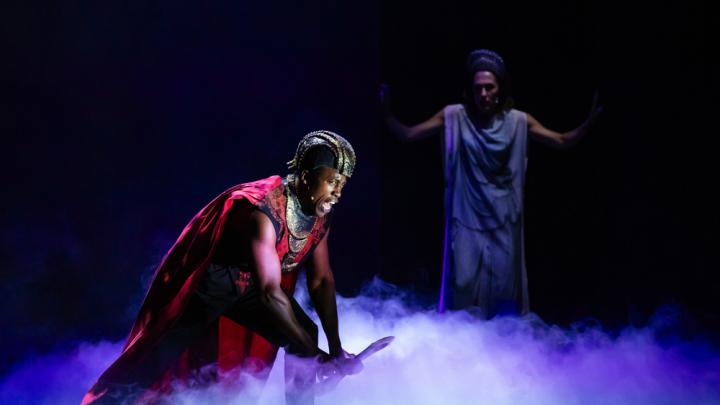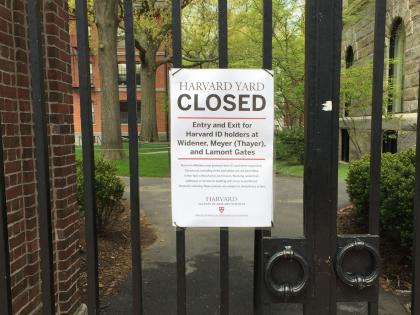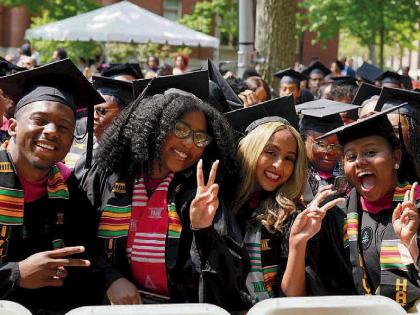When audience members walk into the American Repertory Theater’s new production, The Half-God of Rainfall, they see a beautiful mural. In the center is the silhouette of a young boy shooting a basketball. No Jerry West, the small child launches a ball into West Africa—the continent’s silhouette colorfully reverberates around him. Bright patterns evoking African art or modern streetwear wrap around the stage’s three walls. The effect is mesmerizing.
But once the seven black-clad actors enter, the mural melts away; what looked like a painting is revealed instead to be a digital display, showing basketball hoops, Greek statues, and cloud time-lapse videos.
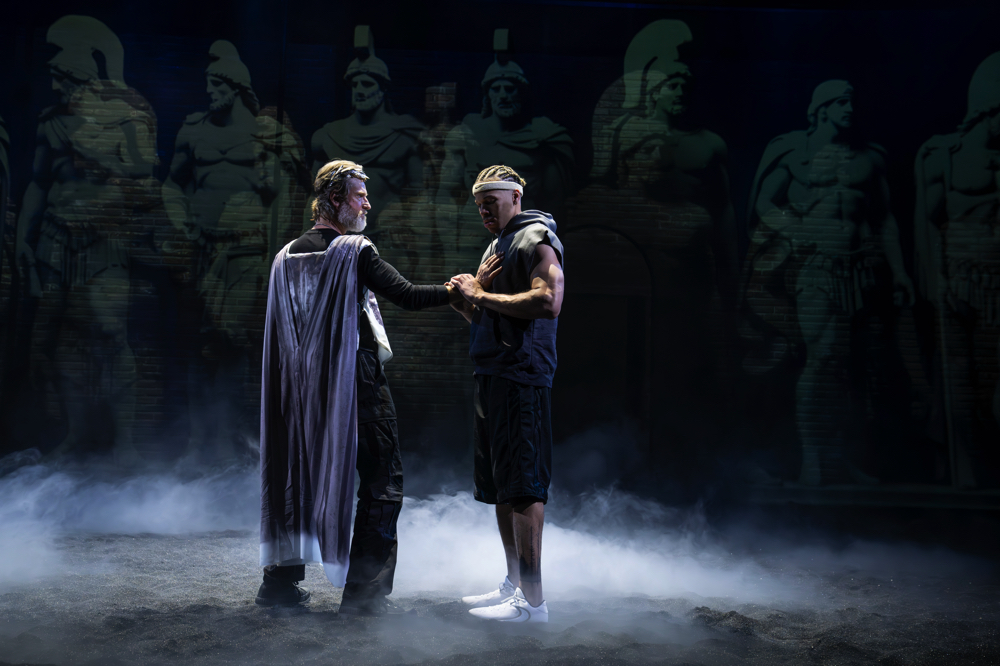
Like the backdrop, the play itself does not stick to established expectations, either. Sometimes this works, sometimes it doesn’t. Ostensibly, the play is about a half-Nigerian man, half-Greek god—aptly named Demi—who is very good at basketball. Given this premise, one might anticipate a gimmicky, feel-good tale. But playwright Inua Ellams pursues something deeper. Plenty of stories have been told about demigods. But what about their mothers?
The plot is split between Demi (Mister Fitzgerald) and his mother, Modúpé (Jennifer Mogbock), a mortal who was raped by Zeus. Demi comes off as a boyish jock who seeks to solve his problems through simple force. But Modúpé is the play’s better half—given an unwanted gift, she must learn to love her son even as she is traumatized by his conception.
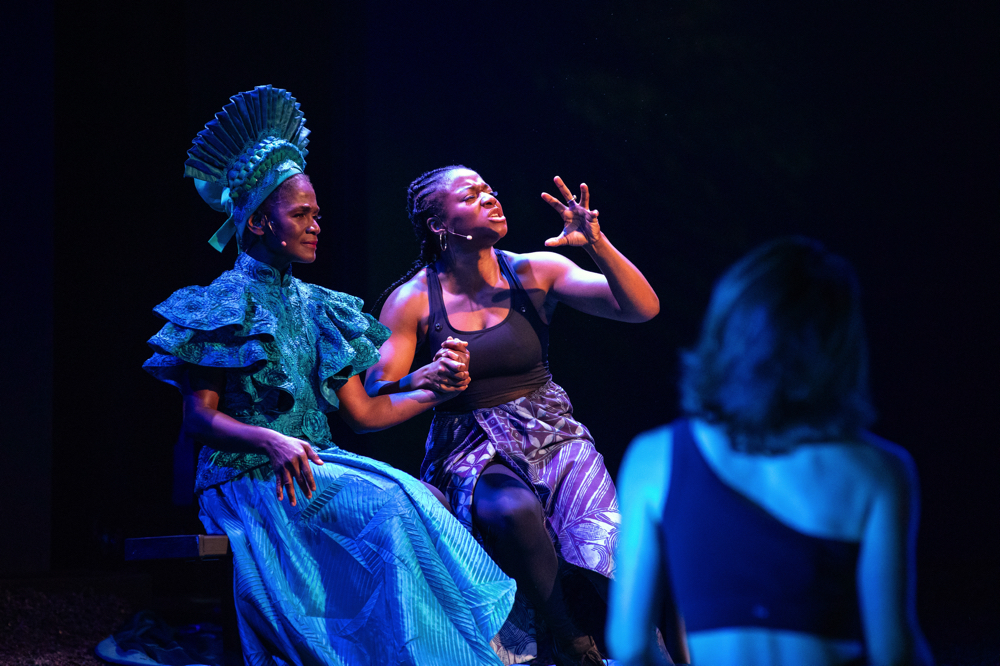
Modúpé finds strength through community with other mythical victims of sexual abuse, leading what could be called a divine #MeToo movement. She invokes the mothers of Perseus and Helen of Troy, emphasizing rape’s pervasiveness in Greek myth. Often, her lines seem to speak more to contemporary issues than the plot at hand. “What exact regime,” she asks, “teaches males to take what isn’t given?”
The mythological characters paint a clear picture of sexual violence. Zeus rapes Modúpé on stage, which is a hard scene to watch. This fictional violation—involving a god attacking a human—makes the power imbalance characterizing many sexual assaults clear in a way that news coverage of rape allegations in the mortal world cannot.
Although Modúpé’s narrative is powerful, the play as a whole jumps around storylines and struggles to find its flow. There’s a long anecdote depicting a fight between Greek and Yoruba deities that serves little purpose beyond explaining how Zeus encountered a Nigerian woman and showing how gods can be immature, too. Demi’s interwoven narrative—his ascent to basketball stardom—doesn’t divulge the complexities of his heart, and that part of the plot often opts for entertainment rather than cohesion. (One scene, for example, hints towards a battle between Demi and other godly NBA players, but that tension is never revisited.) In that space, perhaps more could be said about Modúpé, the show’s unlikely hero.
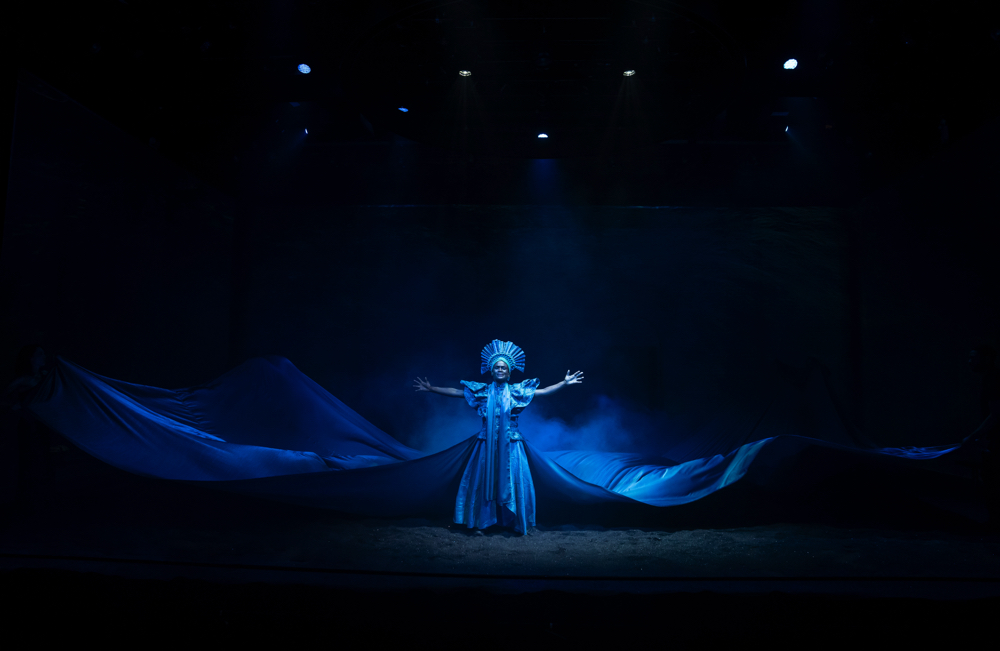
<span class="caption"> Patrice Johnson Chevannes in </em>The Half-God of Rainfall</em> a co-production with New York Theatre Workshop. </span><span class="credit">Photograph by Joan Marcus</span>
Even if the plot is fractured, the play is beautifully produced. The dialogue is adapted from Ellam’s 2019 epic poem of the same name, and the narration sounds like an energetic poetry reading. The costuming is impressive, especially one Yoruba river god, whose wave-like dress takes up the entire stage. The stage itself is a box of dirt contained by short glass walls. Combined with the video display, the entire design helps bring new life to ancient myths.
Ultimately, the play raises compelling questions about contemporary times. Who is worthy of admiration? What are heroes teaching? How does the trauma of sexual violence endure?
